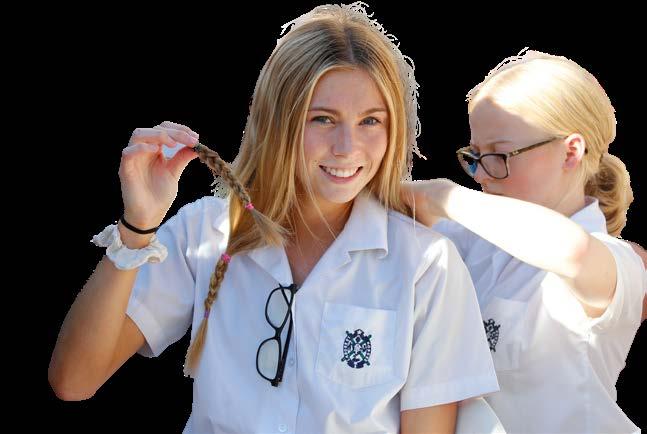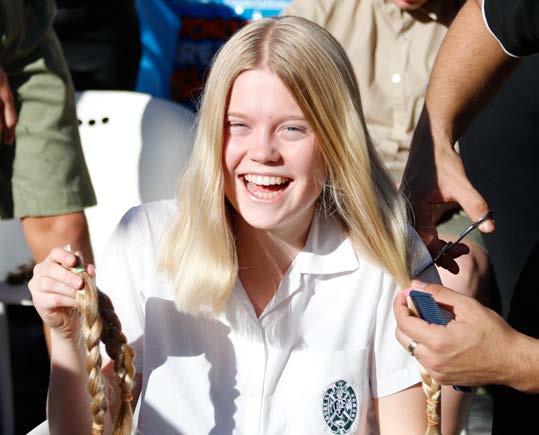
3 minute read
Science is in our DNA at PLC
Science is in our
DNA at PLC
PLC has acquired its own piece of cutting-edge technology, commonly used by researchers on the International Space Station – a machine which replicates DNA.
To enable the Year 12 Biology and Human Biology students’ development of biotechnology skills, PLC has recently incorporated the MINI16 and BLUGEL tools into our teaching practice.
While the MINI16, along with biochemical reagents and computer-based software, allowed students to physically amplify DNA using the Polymerase Chain Reaction (PCR), the BLUGEL gives the students hands-on experience with loading, running, and visualising the amplified DNA through gel electrophoresis. The combination of technologies provides students with an immersive and industry equivalent experience within the classroom.
The purchase of these new technologies was made possible by the BHP Future Ready STEAM Challenge win in 2019 where a group of (then) Year 8 students won the $10,000 prize.
Biology teacher Jane Brandenburg said she was excited about the depth and breadth of learning now possible for our students.
“This technology is cutting edge. We are one of very few schools that are able to do this process using this equipment in our own labs. It gives students hands-on experience and confidence as biotechnologists. This is really important. Not only is biotechnology a critical aspect of the syllabus, but it is also an area where there is increasing employment opportunities,” Ms Brandenburg said.
“This awesome machine replicates DNA. When our cells divide, we need to make new copies of our DNA so each daughter cell gets a complete copy. This machine can do this. It allows a scientist to take a very small sample of DNA, perhaps from a crime scene, or a rare and endangered plant or animal, or from a bacteria or virus and replicate it,” she said.
Currently, Year 12 Biology students have been using this technology in class, but there are plans to also extend its use to Human Biology and with the International Baccalaureate students. There is also the potential to use it to solve DNA mysteries with our younger students.


Hair razing
fight against cancer

(Left to right) Isobel Weir, Grace Flanagan and Jasmine Barrett.
PLC Perth and Scotch College students have raised more than $112,000 for the Leukaemia Foundation in their annual participation in the World’s Greatest Shave.
In late March, 82 PLC girls put up their hands to have their hair cut, including four brave students who had their heads shaved. One of the students, Matilda Lamb (Year 12) had never before had her hair cut and individually raised more than $3,700 for her efforts.
About 130 Year 12 Scotch College students also had their hair cut or shaved.
The World’s Greatest Shave has become an annual feature on the PLC and Scotch calendars, helping to raise money for research and development of new treatment technologies with the aim to cure blood cancers by 2035. Hair collected from the event is made into wigs for people diagnosed with leukaemia. Leukaemia survivor Dom Sheldrick spoke to the students ahead of the event thanking them for their support and fundraising for the World’s Greatest Shave.
A 20-year survivor of the disease, Mr Sheldrick said the money raised from the initiative was directly responsible for advancement of treatments. He said today his particular form of the cancer could be treated simply with a tablet.
PLC parents and guardians are invited to head to the PLC Gallery for all the photos.










